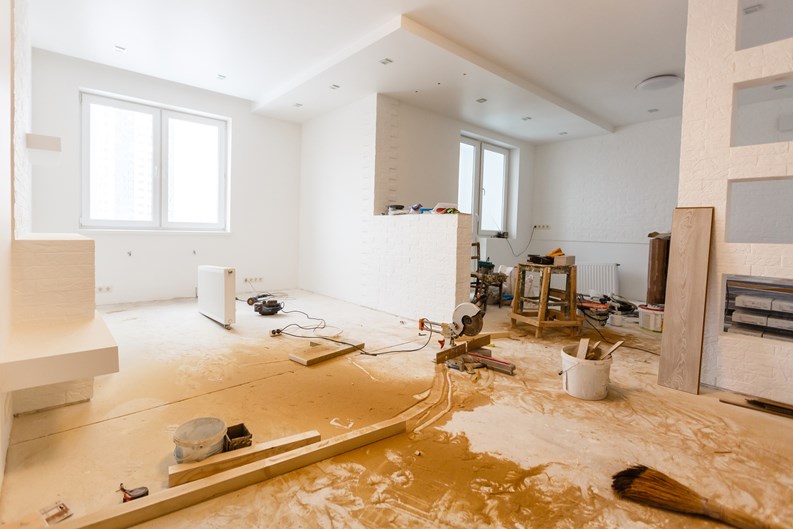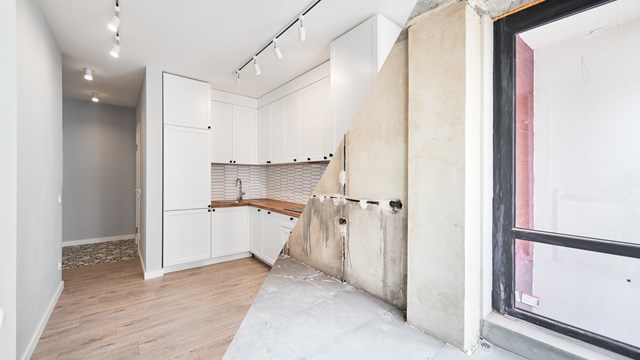With all the pandemic-related restrictions being discussed in the media, it’s sometimes startling to realize how much renovation work is still going on in and around co-op and condominium apartments.
It’s long been routine for co-op boards to require alteration agreements before residents can begin renovation projects in their apartments, but more condo boards are mandating alteration agreements for work in their buildings as well. These agreements serve the same purpose in both types of community; to ensure that a resident’s project does not damage, unduly disrupt, or otherwise negatively impact the building’s common elements, or their neighbors’ property or use thereof.
Along with those concerns, condominium boards also need to be mindful about how an alteration agreement could complicate any outstanding building violations their association may need to remedy, or make those violations more difficult to remove as time goes by. For example, in one instance I know of, unit owners in a condo building planned to have some renovation work done. They secured permission from the board, applied for and were granted a permit by the Department of Buildings (DOB), but then never actually went through with the project. No one thought anything of it until years later, when the board attempted to secure a certificate of occupancy for some commercial space it wished to lease. Before the C of O could be issued however, the building needed to cure a violation it received during a prior DOB inspection. It turns out that the board couldn’t start work to cure the violation until the residents’ unused permit was withdrawn - but it had been so long since the permit was filed that the DOB no longer had the drawings, and therefore could not withdraw it until the drawings were recreated, the permit application re-submitted, re-approved, and then withdrawn. Ultimately it took well over a year to remove that one violation - all because of some long-forgotten, overlooked paperwork for a project that didn’t even happen.
Friction between boards and residents can be another potential complicating factor when it comes to renovations. I receive many calls from owners and shareholders - many of whom have just closed on their apartments and are eager to proceed with renovations, but are being told by their board that their work can’t begin “just yet.” These owners naturally want to get their projects underway as soon as possible after closing, and are frustrated at what they perceive as foot-dragging by the board.
Upon closer inspection however, it often becomes clear that there’s more to it than just a recalcitrant board. For example, in one recent such conversation, the caller was a unit owner looking for legal counsel to accompany her to the next board meeting to state her case. She told me that she just wanted to do “a little bit of work” on her unit and couldn’t understand why she had to jump through so many bureaucratic hoops before the project could start. She felt that the board was being unreasonably difficult.
When I asked for details about the proposed project however, the caller told me her plans included installing a shower where there had been a bathtub. While to a layperson that might indeed sound like “just a little bit of work,” but as a construction and co-op/condominium attorney, I saw a lot of potential complications right off the bat. First and foremost, the project as described involved what’s called “wet over dry” work - renovation work on a “wet” area, like a bathroom or kitchen, positioned over a “dry” area on the floor below, such as a bedroom or living room. In addition to that, the caller had not worked with an architect in preparing the sketches presented to the board, and it was unclear whether a building permit would be needed for the project. No wonder the board was taking their time!
While the idea of a shareholder or unit owner just commencing a major renovation project without any sort of notification to their board may defy common sense, it happens more often than you might think. Indeed, thanks to the pandemic some buildings almost feel abandoned, as so many residents relocated to second homes outside of the city in order to avoid exposure to COVID. Stories have emerged of residents taking advantage of the situation to get around their buildings’ rules on alteration agreements for renovations. In one instance I’m familiar with, a party purchased a condominium unit in cash and then just began renovating the apartment - including a bathroom - without submitting any plans or securing board permission at all, much less an alteration agreement. (The board did stop the project when it discovered what was going on - no doubt leading to extra costs for the owner that could have been avoided had they followed proper procedure before beginning the work.)
In all but the most superficial of renovation projects, boards have a duty to review proposals, vet plans, and make sure that the work being done on one resident’s home isn’t negatively impacting anyone else’s. Boards have considerable discretion to do so under the Business Judgment Rule, and should have very specific rules in place as safeguards. Resolving matters in court is difficult, time-consuming, and expensive - so when it comes to renovations, alteration agreements, and the documentation to support them, it’s always advisable to work things out with the assistance of counsel before a single nail is hammered.
C. Jaye Berger Is the founder of Law Offices C. Jaye Berger in New York City, focusing her practice on real estate, co-op and condo law, access and construction issues. She can be reached at lawofficescjb@aol.com.







Leave a Comment